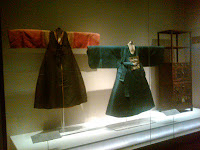Melihat judul dari novel ini membuatkan aku tertarik untuk membacanya, apatah lagi setelah aku mengetahui bahawa novel ini adalah Sebuah kisah yang katanya merupakan kisah nyata perjalanan hidup seorang wanita solehah yang akhirnya menjalani kisah hidup yang amat memilukan. Cerita tentang kehidupan seseorang yang dianggap begitu hina dan kotor oleh sebahagian orang, yakni menjadi seorang pelacur.
”Beribadah itu pelan-pelan... Jangan terburu-buru ingin melakukan segalanya. Yang penting kontinyu”
Pesanan ini, menurut saya, telah menyatakan tentang apa yang terisi dalam keseluruhan buku ini. Jawapan ini juga yang akan saya berikan kepada Nidah Kirani, watak utama dalam cerita ini, andai kata saya bertemu dengan insan sepertinya. Saya tertarik untuk membaca karya dari Muhidin M. Dahlan ketika saya masih dizaman mahasiswa lagi. Kebanyakan bukunya yang begiru kontroversial dan banyak karya-karya bukunya yang telah dilarang untuk diterbitkan membuatkan perasaan ingin tahu saya terhadap buku-buku karya beliau semakin membuak-buak.
Harapan saya begitu tinggi terhadap isi buku ini. Judul yang provokatif membuat saya mengagakkan adanya pemikiran yang begitu kontroversial sehingga mampu membuat saya mempertanyakan tentang keimanan saya. Namun, dari bab demi bab dalam buku ini yang saya baca hingga titik pengakhiran cerita yang bagaikan tak kunjung tiba membuatkan jiwa saya bergolak.
Nidah Kirani, sosok manusia yang begitu besar keinginannya mengabdikan dirinya terhadap Tuhan berakhir kepada kekecewaan. Saya melihat ada kekosongan begitu besar dalam diri Nidah. Ia tak sabar dalam mengisi kekosongannya. Ia menginginkan semua jawapan datang begitu cepat. Sehingga proses yang lambat dan sedikit masalah sudah cukup membuatkan keimanannya goyah dan kemudiannya menyalahkan tuhan dan takdir diatas kekecewaan yang dialami olehnya.
Walaupun begitu, saya tak mengerti jika buku ini boleh menyinggung perasaan beberapa alim-ulama dan orang yang arif tentang ahli agama. Menurut saya, dengan iman mereka yang seharusnya begitu kuat tak perlu merasa terhina dan terganggu dengan isi buku ini. Saya setuju bahawa terhasutnya seseorang ke jalan yang tidak baik kerana buku ini bukanlah salah pada apa yang terkandung didalam buku ini. Semua bergantung pembaca dan saya yakin pembaca mampu menentukan yang mana benar dan yang salah.
Satu kata-kata yang ingin saya titipkan dalam ulasan saya mengenai novel ini,
"Iman yang tak digoncangkan, se-pengetahuanku adalah iman yang rapuh dan iman yang menipu. Oleh itu berhati-hatilah!..."
Selamat membaca!






























































